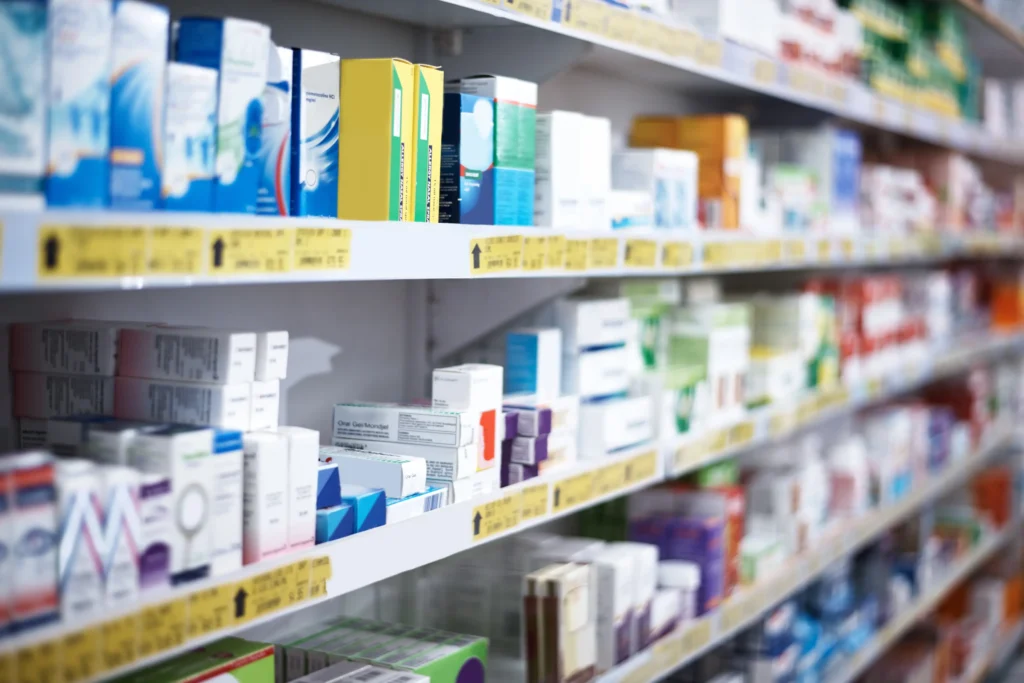This refers to what has been traditionally known as a community pharmacy with the sole purpose of availing health services and medication to the people.
Retail pharmacies play a pivotal role in the healthcare system, and they can be traced to the local community neighborhoods, near the marketplace or shopping complexes and within the precincts of bigger institutions such as larger hospitals.
Many people do not comprehend what retail pharmacies are, where they emanate from and what role they actually play in our health sector. This article will therefore help to break down this topic.
History and Evolution
Retail pharmacies have evolved for centuries from what commenced as traditional herbalists to the modern facilities established to provide medical care with a strict focus on pharmaceuticals.

Local Pharmacy has more than medicine!
The concept started as tiny family-owned entities where pharmacists united to make medication from raw components. Over time, it has changed and grown steadily into now what is a regulated and standardized industry with the role of pharmacists unfolding into increased patient care, medical advice and the distribution of medication. Currently, retail pharmacies are at the forefront of making sure that medical services are readily accessible as they provide a remedy for those suffering from minor issues, and vaccinations including rendering advice pertaining to the management of chronic conditions. This is vital, especially in marginalized and rural areas where medical physicians are inaccessible and few in most instances.
Services
Retail pharmacies also offer a wide array of services. This includes dispensing medication using the prescriptions from healthcare practitioners and ensuring that patients comprehend how to use the medication securely and devoid of any complications. They also enlighten patients about the use of medication, the probable side effects, medication interactions and the ideal drug administration methods. Retail pharmacies also perform screenings and immunizations meting out vaccines for shingles, pneumonia and other ailments, which can be easily prevented. They further help with the management of chronic diseases such as diabetes and high blood pressure including providing secondary support such as monitoring and psychological support. In addition to consultation services, these pharmacies also stock over-the-counter medical products, which do not require any prescriptions.
Essence in the Healthcare System
Retail pharmacies offer a direct linkage between the people and the larger mainstream healthcare system. They act as centers where patients can seek consultation, obtain medical advice and get ample remedies for minor ailments hence eliminating the need of always indulging the services of physicians and emergency facilities. This aids to save on time and money whilst also guaranteeing convenience. Pharmacists ensure that people adhere to the medication, and they eliminate errors resulting from medication administration by figuring out possible drug interactions in advance. Further, they plan varying campaigns aimed at helping the people such as vaccination drives and other health learning and literacy programs. This makes them an essential part of the healthcare cog through concerted collaborative efforts with physicians and other practitioners to ensure optimal results.
Challenges
Retail pharmacies usually encounter financial constraints due to the limited funding and lack of dedicated and budgeted government allocations compared to the larger hospitals constituting the broader healthcare system. This culminates in other issues such as understaffing leading to underachieving and failure to meet clearly provided deliverables. Other struggles include difficulties in compliance with strict regulatory stipulations and requirements, which are too complicated, expensive and time-consuming. With the modern contemporary needs in the health sector such as the need to maintain electronic records, retail pharmacies find it difficult to integrate technology into their operations, as this needs colossal sums of money. Finally, retail pharmacies are facing the prospect of being phased out by bigger pharmacy chains and other online pharmacies due to increased competitiveness and unfair advantage.
Contemporary Adjustments
There have been to make changes by retail pharmacies to conform to changes in the healthcare system and the new patient medical delivery outlook. By being immediate and direct healthcare service providers, retail pharmacies have been forced and expand the scope and breadth of their mandate to include laboratory testing and medication prescription. This also involves the adoption of technology and tele-pharmacy to ensure that they are capable of offering remote services such as consultations and related services. Finally, they have heightened collaborations with other healthcare teams to conjure up public health enterprises and initiatives geared towards helping the citizenry tackle pandemics such as the recent COVID-19 or opioid and smoking cessation and prevention programs.
The foregoing clearly describes retail pharmacies and proves that they will continue to play an integral role in the delivery of healthcare services in the near future hence they remain indispensable in catering to the diverse medical needs of societies globally.




